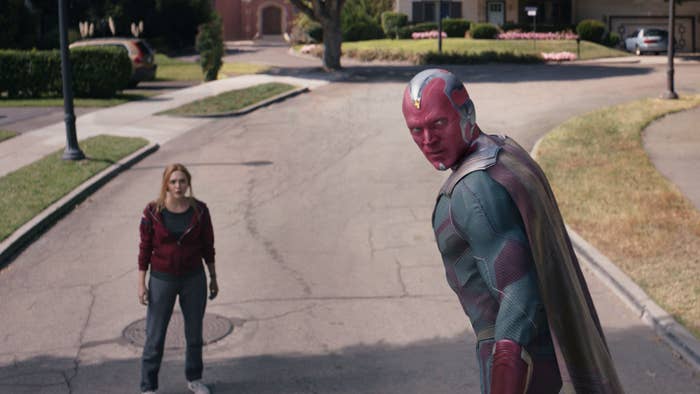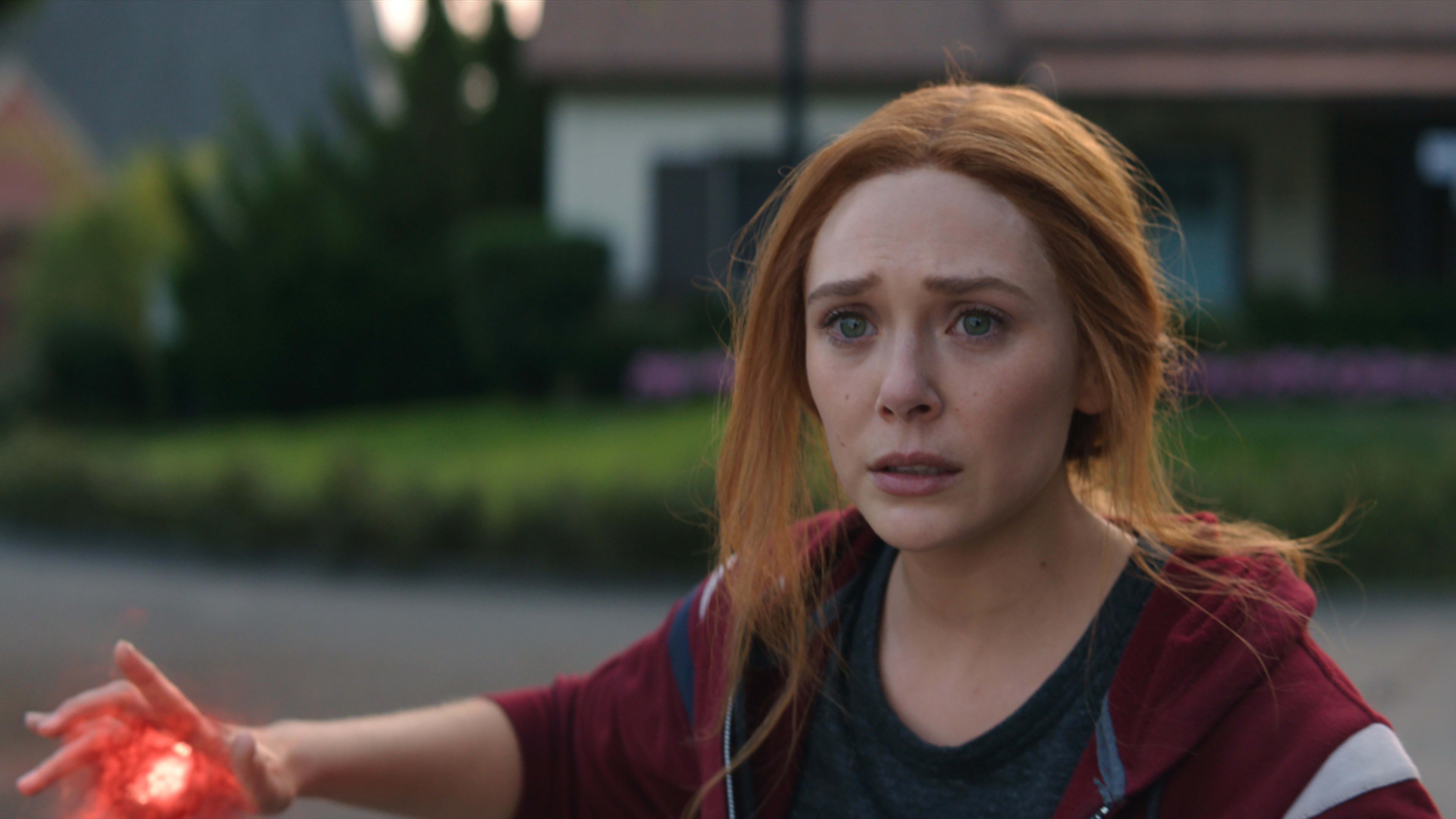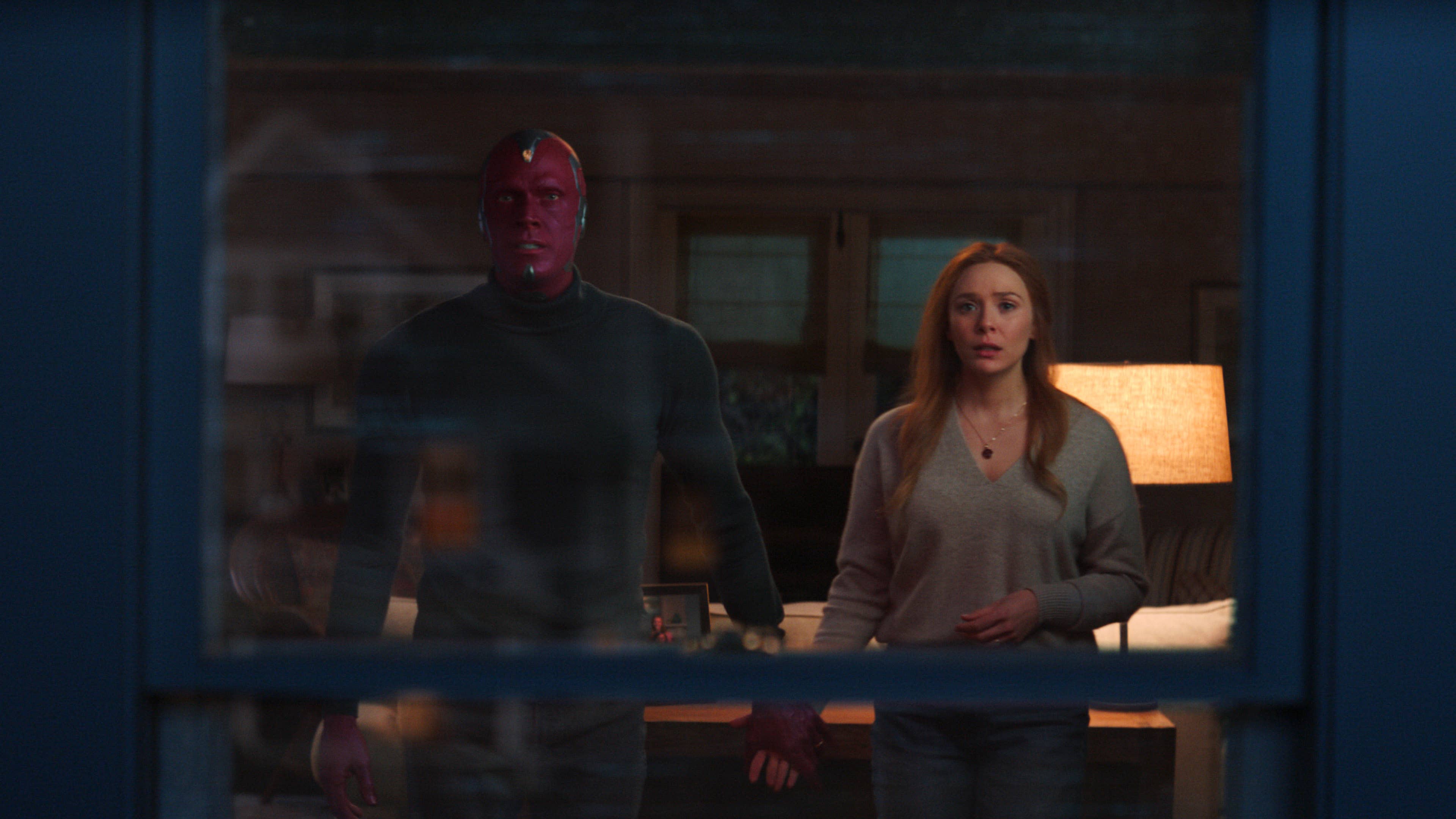
[Ed note: Spoilers for the entire season of WandaVision below. You’ve been warned.]
One of the most important questions heading into WandaVision involved just how Marvel might translate its big-screen success to the streaming screen. It’s a different set of expectations from the ones for The Mandalorian, more akin to trying to figure out whether or not Disney could get lightning to strike twice. For the last nine weeks, it’s clear the studio has successfully figured out how to bring that massive sense of scale to your small screen. At least in the case of WandaVision, the difference here is that a television format allows big emotions, too.
When it was first announced, there was a sense that WandaVision was going to dig into love and loss in an impactful way. But it took us a while to get to that point. The sitcom-heavy framing device of the first half of the show seemingly functioned as a gimmick to hook viewers into the series. As we progressed, the format took on an increasingly metatextual quality. As revealed in the show’s eighth episode, “Previously On,” Wanda has a storied history with television sitcoms, with comedies like The Dick Van Dyke Show were staples of her family life before Stark weaponry destroyed her home and killed her parents. Even in the wake of Pietro (Aaron Taylor-Johnson), television was there to comfort her as a temporary respite from grief and sadness. It’s no wonder why Wanda’s literal escape from reality after the death of Vision (Paul Bettany) manifested as a sitcom world. It’s likely a feeling many of us can relate to—and a sentiment further bolstered by the reality of the COVID-19 pandemic over the last year.

Structuring all of WandaVision around this allows showrunner Jac Schaeffer to have the show become a love letter to how TV and raise us, filtered through the lens of the MCU and one of its now most powerful characters. It also, helpfully, allowed to fill in some of the lacking gaps in Wanda’s history. Too often in comics, Wanda is a character who is “crazy” for the sake of having her reality-altering powers go off the rails. WandaVision accomplishes the same goals by smartly reframing similar beats through grief instead. The result makes this version of Wanda far more compelling, fleshing out her backstory in a way that feels as deep as the tales we’ve gotten for Tony Stark, Thor, and Steve Rogers.
Part of the effectiveness of this character work rests at the feet of Olsen’s performance. The full range of her powers (no pun intended) is on display throughout WandaVision, as she gracefully channels the comedic talents of decades worth of performers while also making Wanda’s journey into grief deeply powerful. I’m in awe of the range she displays here, and it’s nice to see her fully unleashed after taking a more supporting role in previous films. I’m curious to see how or if Doctor Strange in the Multiverse of Madness will provide this same amount of depth and if she’ll have additional opportunities outside of the upcoming sequel to play a major role in the future MCU movies. I’m glad Vision is still around as well, as Bettany has made me care more about Vision and his relationship with Wanda than I did at the start.

Where WandaVision stumbled was in its inherent MCU-origins. At the end of the day, the series was likely to end in a comic book-like showdown. Even with the economy of storytelling television provides, Agatha’s (Kathyrn Hahn) reveal and motivations needed more depth than just an incredibly catchy song. I wish all of the wonderful scenery-chewing from a visibly game Hahn amounted to a little more than just being evil for the sake of having an antagonist for Wanda to fight. Additionally, Hayward (Josh Stamberg) is reduced to a government drone, which feels in lock-step with other MCU villains. I think future Marvel Disney+ series will avoid this—Falcon and the Winter Soldier, for example, has the luxury of having one of Marvel’s best villains back in action—but it’s still frustrating all the same. I also can’t help but feel Monica Rambeau (Teyonah Parris) was largely sidelined for the back-half in exchange for Wanda’s development. There was such a possibility for a connection between her and Wanda, given their shared grief. Instead, her story got lost in the shuffle as the series barrelled towards its conclusion. I’m also disappointed any direct addressing of her powers will have to wait until Captain Marvel 2.
WandaVision initially felt unique and bold just by how it formatted its story within the MCU’s confines. Now, it feels even more special because of the story it told. Who cares if we didn’t get the X-Men? I argue we got something much better, deeper, and richer instead. If Marvel’s future is more character-driven than before, that’s excellent news for those who are already deeply invested in this world.

